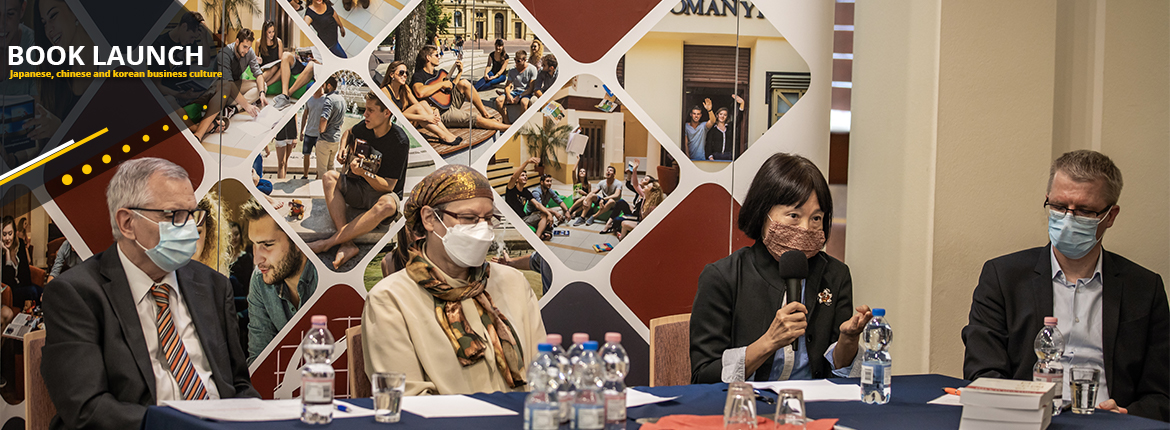Event Calendar 
-
April 13. 10:00 - 17. 14:00

The Faculty of Economics and Business Administration together with the Economic Committee of the Hungarian Academy of Sciences, Szeged Regional Committee and the SZTE Konfucius Institute hosted a book launch on 23 September 2020. The four authors of the book titled “Japanese, Chinese and Korean business culture” presented their book together, with Dr. Ábel Garamhegyi, associate professor at GTK being the moderator.
It is a tradition at our Faculty to organize book launches in the case of exceptional publications. Dr. Zoltán Majó opened the event and gave a welcome speech, followed by moderator Dr. Ábel Garamhegyi asking questions from the authors. The publication of this book is preceded by the “Far-East intercultural management course” started four years ago. This course introduces the most important information regarding business life in all three regions. The book is written in a readable style thus it can be useful for everyone interested in the Far East.
All four authors were present in the main building of GTK: Anna Székács (completed her elementary school studies in Japan and started to teach Japanese language when moving back to Hungary), Sato Noriko (arriving in Hungary with a scholarship and started to work as a translator and interpreter), Gábor Osváth (being involved in a project and had the chance to travel to Korea and study the language) and Richárd Mohr (director of the SZTE Konfucius Institute, living in China for several years).
The book provides plenty of examples and it is a good guidance how to accommodate to the business culture of a given area, thus being able to make a successful business deal by knowing the behavioural norms expected in a business situation. It was shared in the book launch that Japanese businessmen did not tolerate intensive emotional attitude, they were very open and expected it from their business partners also. The moderator also asked the question how North and South Korea could make business with each other considering the enormous differences between them. According to Gábor Osváth, it is easier to establish business relations with South Korea. It is highly important in the case of all three regions that a good personal relationship should be established first when negotiating a business deal, and having a good acquaintance could be a huge advantage. The primary aim is to earn the trust of our business partner and to prove that we are trustworthy.
Sato Noriko shared that Japanese organizations have a warm atmosphere where employees consider the director as a head of the household and expect him to take care of his employees. As a result of this, employees have a strong and harmonious relationship with each other reflected in the efficiency of their work performance. Japanese handle every business meeting as a unique, unrepeatable occasion, therefore, they give their full attention.
Since the manuscript of the book was finished before the COVID-19 pandemic, the moderator wanted to discuss how the pandemic induced changes in these countries. Firstly, the authors told the audience that the Japanese organizations started to seriously consider to maintain home office and close the business centres in Tokio, because it is widespread in Japan that people work far from their families. In China and South Korea people accommodated well to wearing masks because being members of a collective culture they consider it important to protect others’ health.
The book launch provided opportunity for all participants to ask questions and they could also order the book. The organizers paid special attention to follow pandemic rules. It was compulsory to wear a mask and keep social distance.